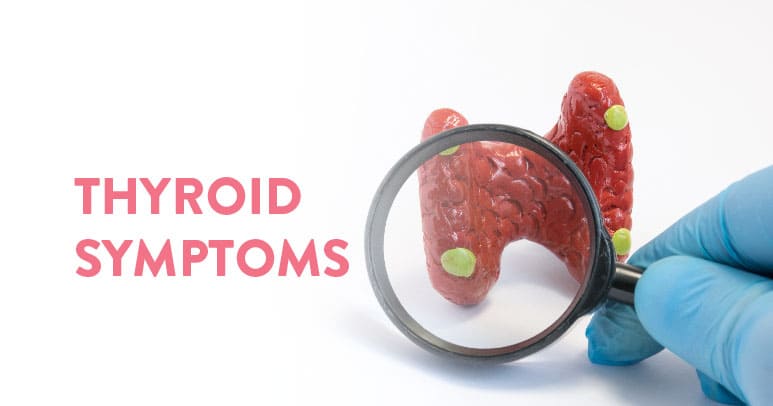Table of Contents
Introduction:
It’s important to be able to identify the symptoms of thyroid dysfunction, as early diagnosis and treatment is critical to preventing more serious health problems. Unfortunately, many people don’t realize they have a problem until it’s too late.
That’s why it’s important to be familiar with the symptoms of thyroid dysfunction. Below are some of the most common symptoms. If you experience any of these, please see a doctor right away.
What Is the Thyroid?
The thyroid is a small, butterfly-shaped gland located in the lower front of your neck. It produces hormones that help regulate your metabolism and energy levels.
If the thyroid isn’t working properly, it can cause a variety of symptoms, such as weight gain or loss, fatigue, constipation, hair loss, and more. It’s important to be aware of these symptoms and see a doctor if you’re experiencing them, because they could be signs of a thyroid disorder.
What Are the Common Signs and Symptoms of Thyroid Dysfunction?
One of the most common problems that people have with their thyroid is that they don’t know what the symptoms are. That’s why it’s important to be familiar with the most common signs and symptoms of thyroid dysfunction.
Some of the most common symptoms are weight gain or weight loss, fatigue, brain fog, feeling cold all the time, and hair loss. If you are experiencing any of these symptoms, it’s important to see a doctor and get your thyroid checked out.
The Five Thyroid Tests: What Are They?
The most prevalent endocrine disease that most people experience today is hypothyroidism. Thyroid disease is now three times more common than it was thirty years ago, and the prevalence is rising. It is important to have a thyroid test if you have any thyroid-related symptoms.
This article will help you understand things by describing what each test looks for and why it matters if you have hypothyroidism suspicions or are just curious about how your thyroid functions and what tests you should take if something is wrong with yours:
TSH Test:

The thyroid-stimulating hormone (TSH), which controls the thyroid gland, is measured by the TSH test, which is the most used thyroid test. Less TSH and more T4 are produced by your body when you have hypothyroidism. The pituitary gland may release more TSH as a result, pushing the thyroid to create additional hormones.
However, if you have hyperthyroidism, your body may create excessive amounts of T4 and T3 hormones to make up for the increased metabolic demands on your heart and kidneys.
Thyroxin (T4)

Thyroxin (T4) is a hormone that is measured in the blood by the T4 test. This is one of the vital hormones that your thyroid gland, located near the base of your throat, generates. The T4 test is useful in monitoring thyroid replacement medication and can be used to diagnose hypothyroidism and hyperthyroidism.
T3 Test:
T3, or triiodothyronine, is a thyroid hormone that is detected using a test called the T3. Your thyroid gland produces and converts T4 into T3, the active thyroid hormone that your body uses to control metabolism and other activities (thyroxin).
Test for anti-thyroid antibodies:
Anti-thyroid antibodies are immune system-produced proteins that assault and kill the thyroid gland. This may result in one or more of the following issues:
• Graves’ disease occurs when your thyroid produces too many hormones as a result of your immune system.
• An autoimmune condition known as chronic autoimmune thyroiditis is Hashimoto’s disease. In this instance, the thyroid gland is attacked by the body, resulting in inflammation and cellular harm.
5. Thyroid Scan:

A thyroid scan is a nuclear medicine test that looks at the thyroid using a little amount of radioactive material. The aberrant tissue adheres to the radioactive marker, which then shows up on an image.
The thyroid scan can be used to identify malignant nodules and other thyroid abnormalities, as well as to establish whether a nodule is cancerous. It can be beneficial to monitor certain conditions’ responses to treatment or to conduct follow-up after treatment.
The prevalence of hypothyroidism makes it crucial to understand what tests you require if your thyroid isn’t functioning properly;
The thyroid gland, an organ in the neck that resembles a butterfly, secretes hormones that control metabolism as well as other bodily processes like digestion, respiration, heart rate, and blood pressure. TSH (stimulating thyroid hormone), which is secreted by the pituitary gland, causes the thyroid to create thyroxine (T4), which controls all other bodily functions.
When one hormone is present in excess or insufficient amounts, the delicate hormonal balance of the thyroid gland is disrupted, which can have major negative health effects.
If your TSH level is high, you may have an adequate amount of active T4 in your bloodstream but an excessive amount of inactive T3 or RTH, which can lead to hypothyroidism symptoms like fatigue or weight gain. Before you undergo the test, you can examine the cost to make sure you are aware of the thyroid test cost.
Conclusion:
In conclusion, if you have any questions or concerns, don’t be afraid to ask your doctor.




